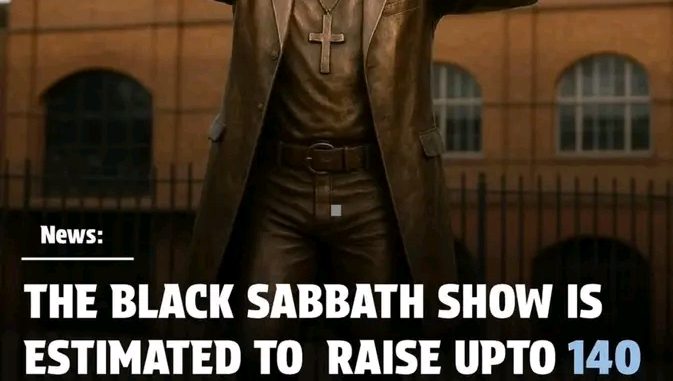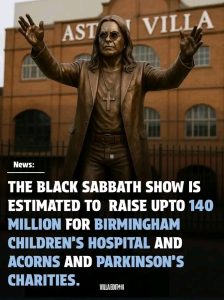
In 1985, Live Aid shattered records and expectations, raising £150 million to combat famine in Ethiopia.
It was a cultural earthquake — a global pop summit featuring titans like Queen, U2, David Bowie, and Madonna, watched by over 1.5 billion people. It redefined what music could do, proving that sound could shake the walls of injustice and bring the world together.
Fast forward 40 years to 2025 — and the unthinkable happened.
Black Sabbath’s “Back to the Beginning” farewell concert, a heavy metal homecoming in Birmingham, raised an astounding £140 million for charity through a single night of thunderous music and a global livestream. No flashy pop production. No multi-genre lineup. Just pure, unfiltered metal.
Let that sink in: a genre often relegated to the underground, dismissed as niche or rebellious, just stood toe-to-toe with one of the most iconic charity events in music history.
This wasn’t just a concert — it was a moment. A testament to the power of loyalty, of decades-long fan devotion, and of a genre that refuses to die. Metalheads across continents united, donating, watching, and screaming every lyric like it was sacred text. Artists poured their souls into the stage, and in doing so, shattered stereotypes.
Live Aid was a pop miracle. But Black Sabbath’s farewell proved that metal — raw, powerful, and unapologetically loud — could move the needle just as much. Maybe even more. Because this wasn’t mainstream music riding a wave of global stardom. This was a genre often left in the shadows, stepping into the spotlight — and owning it.
Passion trumped polish. Power replaced pop. And for one night, the world bowed its head not in silence, but in a deafening, unified roar.
Leave a Reply